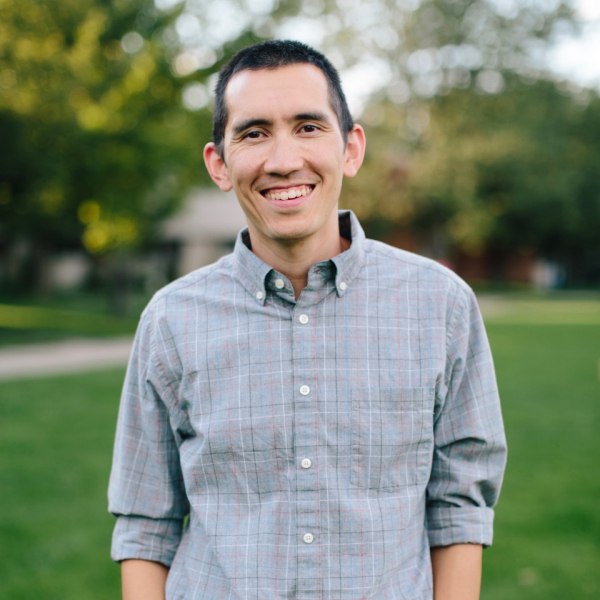Associate Professor
About
Find Me On:
twitterWebsite:
https://ophastings.comRole:
FacultyPosition:
- Associate Professor
Concentration:
- Stratification and Inequality
- Families and Parenting
- Economic Sociology
- Sociology of Religion
- Social Policy
- Quantitative Methods
- Computational Social Science
Department:
- Sociology
Education:
- PhD, Sociology, UC Berkeley
- MA, Sociology, UC Berkeley
- BS, Physics, Rice University
- BA, Mathematics, Rice University
Curriculum Vitae:
Biography
Orestes "Pat" Hastings is an Associate Professor in the Department of Sociology at Colorado State University. Pat's research lies broadly at the intersection of stratification and inequality, the family, economic sociology, demography, and religion, which he studies using quantitative and computational methods. Some recent projects have investigated family structure and parenting, income inequality and parenting, the consequences of families moving to put their children in better schools, and the buffering effects of religion on happiness when people lose their jobs. His publications include work in the American Sociological Review, Demography, Journal of Marriage and Family, and Social Forces. Pat teaches graduate and undergraduate courses on research design and quantitative methods.
Publications
Hastings, Orestes P. and Joe LaBriola. 2023. “The Summer Parental Investment Gap? Socioeconomic Gaps in the Seasonality of Parental Expenditures and Time with School-age Children.” Research in Social Stratification and Mobility 87:100846
Bendeck, Shawna, and Orestes P. Hastings (equal coauthorship). 2023. “Linking Individual and Collective Social Capital: Operationalization, Association, and Sociodemographic Heterogeneity.” Sociological Spectrum 43(1):31-51
Hastings, Orestes P. 2022. “Parental Investments of Money for White, Black, and Hispanic Children in the United States.” Socius 8:1-2.
Hastings, Orestes P. and Daniel Schneider. 2021. “Family Structure and Inequalities in Parents’ Financial Investments in Children.” Journal of Marriage and Family 83(3):717-736.
Hastings, Orestes P. and Kassandra K. Roeser. 2020. “Happiness in Hard Times: Does Religion Buffer the Negative Effect of Unemployment on Happiness?” Social Forces 99(2):447-473.
Hastings, Orestes P. 2019. “Who Feels It? Income Inequality, Relative Deprivation, and Financial Satisfaction in U.S. States, 1973–2012.” Research in Social Stratification and Mobility 60:1-15.
Goldstein, Adam and Orestes P. Hastings. 2019. “Buying In: Positional Competition, Schools, Income Inequality, and Housing Consumption.” Sociological Science 6:416-445.
Schneider, Daniel, Orestes P. Hastings, and Joe LaBriola. 2018. “Income Inequality and Class Divides in Parental Investment.” American Sociological Review 83(3):475-507.
Hastings, Orestes P. 2018. “Less Equal, Less Trusting? Reexamining Longitudinal and Cross-sectional Effects of Income Inequality on Trust in U.S. States, 1973–2012.” Social Science Research 74:77-95.
Schneider, Daniel and Orestes P. Hastings. 2017. “Income Inequality and Household Labor.” Social Forces 96(2):481-506.
Fligstein, Neil, Orestes P. Hastings, and Adam Goldstein. 2017. “Keeping up with the Joneses: How Households Fared in the Era of High Income Inequality and the Housing Price Bubble, 1999–2007.” Socius: Sociological Research for a Dynamic World 3:1-15.
Hastings, Orestes P. 2016. “Not a Lonely Crowd? Social Connectedness, Religious Service Attendance, and the Spiritual But Not Religious.” Social Science Research 57:63-79.
Hout, Michael and Orestes P. Hastings. 2016. “Reliability of the Core Items in the General Social Survey: Estimates from the Three-wave Panels, 2006-2014.” Sociological Science 3:971-1002.
Schneider, Daniel and Orestes P. Hastings. 2015. “Socioeconomic Variation in the Demographic Response to Economic Shocks in the United States: Evidence from the Great Recession.” Demography 52(6):1893-1915.
Hout, Michael and Orestes P. Hastings. 2014. “Recession, Religion, and Happiness, 2006–2010.” in Religion and Inequality in America: Research and Theory on Religion’s Role in Stratification, Lisa A. Keister and Darren E. Sherkat (eds.). Cambridge University Press.
Hastings, Orestes P. and D. Michael Lindsay. 2013. “Rethinking Religious Gender Differences: The Case of Elite Women.” Sociology of Religion 74(4):471-495.
Courses
-
Soc 511: Sociological Methods II (Graduate Statistics)
-
Soc 510: Sociological Methods I
-
Soc 314: Applications of Quantitative Research
-
Soc 210: The Power of Numbers–Statistics in Sociology
-
Soc 613: Seminar on Regression and Path Analysis (Advanced Grad Statistics)
